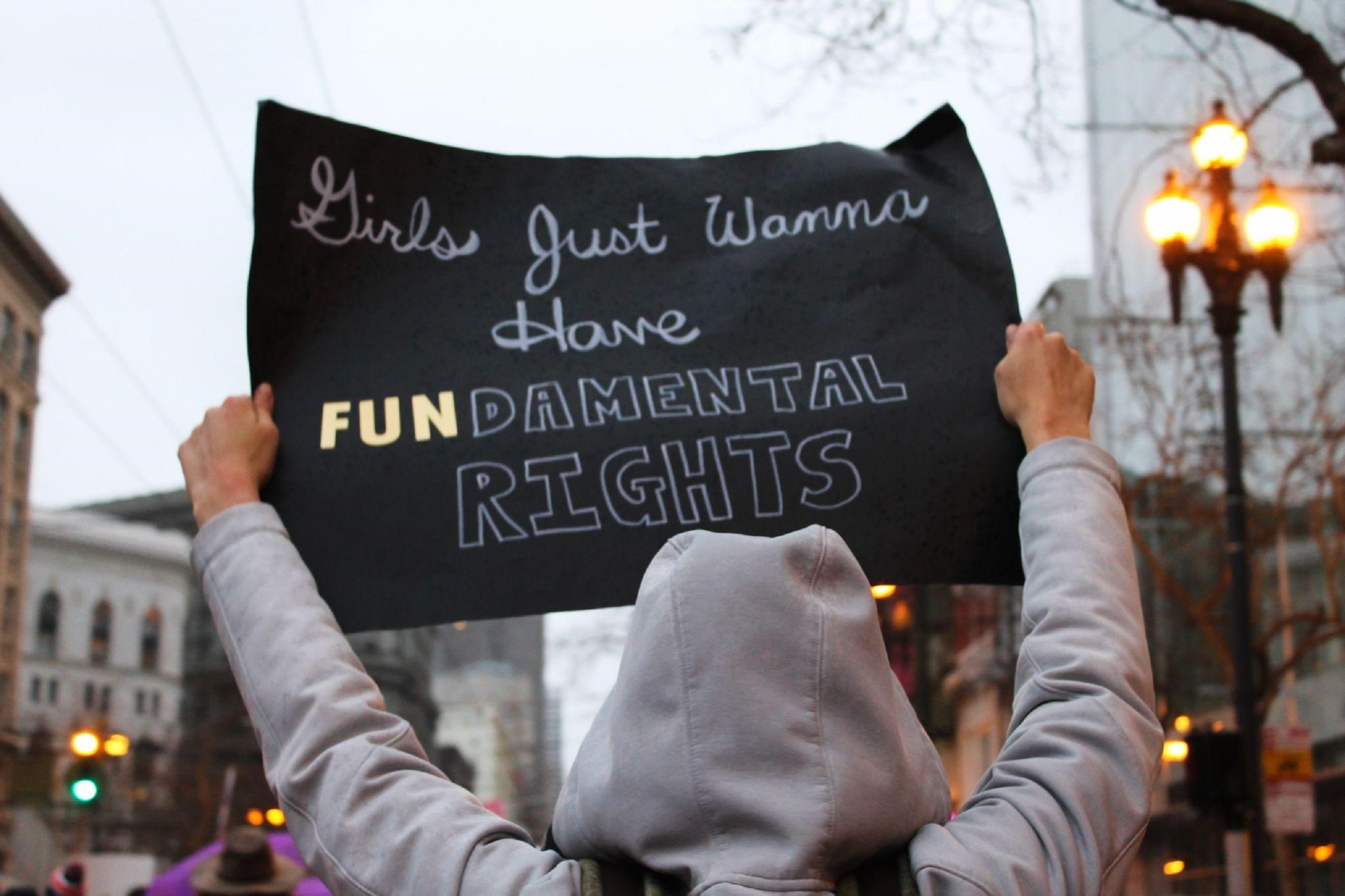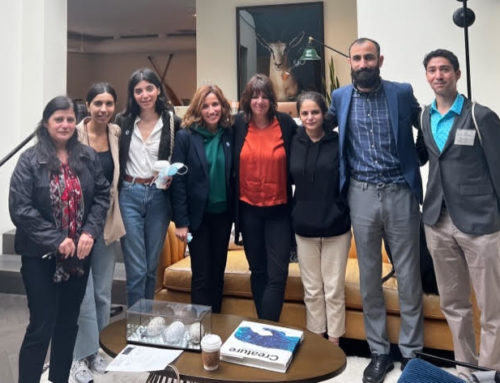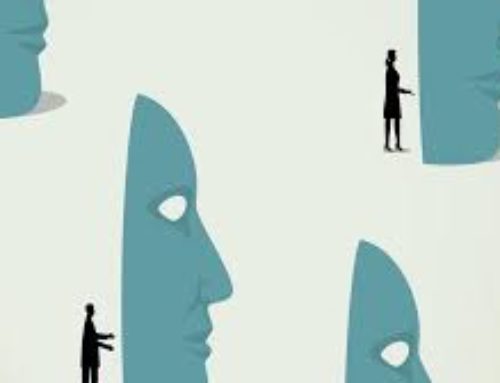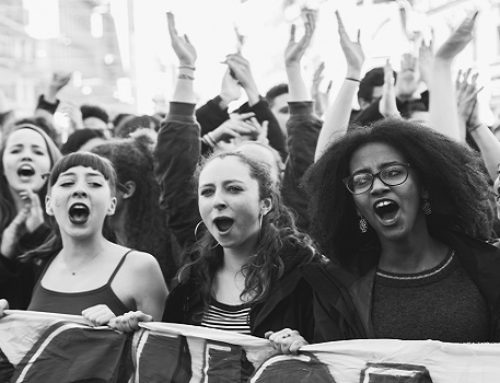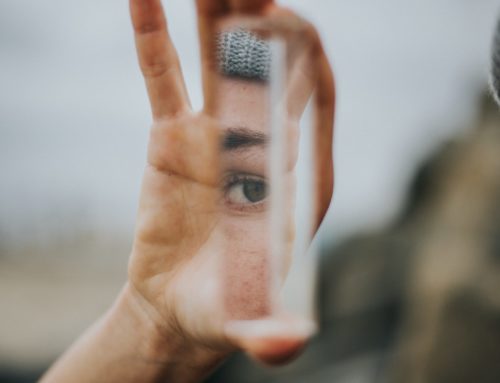Skip to content
This is Not a Drill: What You Can and Should Be Doing about Roe’s Appalling Reversal
This is Not a Drill: What You Can and Should Be Doing about Roe’s Appalling Reversal
Written by Amy Breshears, Kaylie Beatty, and Diana Ruiz
The reversal of Roe v. Wade has elicited a multitude of reactions – sadness, rage, betrayal, confusion. The most dangerous of all are the feelings of demoralization, and that past and present efforts to protect women are futile.
This momentous decision has served to ingrain a deep distrust of The U.S. Supreme Court. And rightly so: this feels like a tactic to subjugate women, an assault on rights fought for by generations. In doing this, the Supreme Court is communicating a dispiriting implication: women are incapable of making informed, sound decisions about their own body, and any morality attached to the choice to have an abortion is better dictated by the law and government, not by women themselves. Further, this violates a woman’s fundamental right to equality and privacy under the law as well as proper and personalized medical care.
What really boggles the mind is that this decision was made even though it isn’t supported by most Americans. According to Pew Research Center, a non-partisan think tank based in Washington DC, 62% of Americans feel that abortion should be largely protected by law. Those Americans run the gamut of political, personal, and religious beliefs and backgrounds. For example, Rabbi Mara Nathan from Temple Beth-El in San Antonio delivered this sermon in response to Texas’s S.B. 8 law which empowers private citizens to sue abortion providers or those that aid women in getting an abortion. In it, she states “It’s shocking to me that opponents of abortion access routinely ignore the rights of the person within whose womb that fetus resides. There is no recognition that she has or should have any control over what happens to her own body.” The Religious Coalition for Reproductive Rights calls the decision to overturn Roe “a devastating setback for human rights and religious freedom in this country”. They go on to say, “denying someone the inherent right to exercise their divinely-given moral agency and bodily autonomy, and to make decisions about their family and future is a violation of both human rights and religious freedom.” In a recent article, Rolling Stone asserts that “extremists have sought to use religion as a tool to dominate women’s bodies, but Christians have a long history of being in favor of abortion rights.”
What’s more, it isn’t just those who fall to the left of the political spectrum who believe that women’s rights should be protected. While Americans who politically identify as right-of-center are more likely to agree that limitations should be placed on abortion, Pew Research Center tells us that “large shares of those who generally oppose abortion say it should be legal in certain situations”.
This blight on America is judged on a global scale as well. In spite of the American ideal to be the city on a hill, the U.S. has disgraced itself on the world stage. In a scathing statement released by the UN it is noted “UN human rights experts… denounced a shocking and dangerous decision by the Supreme Court of the United States to strike down a nearly fifty-year-old legal precedent that has protected women’s right to choose to have an abortion, describing it as a serious regression of an existing right that will jeopardize women’s health and lives.” It’s no surprise then that, according to the 2022 SDG Gender Index, which tracks the empowerment of women and girls across a variety of metrics — from health to education to workplace rights — the U.S. is ranked at 38th in the world in gender equality. To say this is embarrassing is to understate the severity of its consequences in the everyday lives of American women and girls.
As if it’s not enough to jeopardize the health and well-being of American women, the legal basis for this decision has far-reaching implications for other rights we currently take for granted. It was established in Roe v. Wade that abortion was protected under the right to privacy provision of the Fourteenth Amendment; the Supreme Court now claims this argument is an “abuse of judicial authority.” However, this legal argument is the basis of other hard-fought cases that were tried, and won, to protect the rights of Americans. These include the right to marry someone of your own choosing (Loving v. Virginia, Obergefell v. Hodges), the right to secure contraception (Griswold v. Connecticut), and the right to engage in consensual sexual conduct without the interference of the government (Lawrence v. Texas). These are rights we take for established law, and we now know we don’t have the luxury of doing so. This claim isn’t fear-mongering: Justice Clarence Thomas, one of the loudest voices on the Court for the destruction of Roe, wrote in his opinion that the Supreme Court “should reconsider… Griswold, Lawrence, and Obergefell.” It is not a stretch to say the Supreme Court has lost credibility in the eyes of Americans, and that they are using their own political agendas to negotiate our rights.
Again, the reactions to this landmark decision are myriad. Some, like anger and rage, can serve as fuel to continue this fight. But others are insidious: our sadness becomes despondence, and then acquiescence. This is where the crux of our mission lives.
We must act. We all carry a deep-rooted conviction to not give up. There is work to be done, but we are not without promise. Indeed, many are fighting this fight and have been for a long time. The most effective way to involve yourself is to put your strength and power behind existing leaders in the movement, especially BIPOC and LGBTQ+ organizations. If you have an idea for a new organization or protest, a little research will show you that someone from the BIPOC or LGBTQ+ community has already thought of it. Find them, and fight with them.
There are as many ways to enter this battle as there are warriors in it. Not everyone is comfortable protesting, and not everyone has the resources to volunteer or donate. These are not reasons to stand in the margins. Identify the ways in which you can be a part of this. Are you comfortable with conflict? Become a clinic escort. A natural orator? Speak at your local city council meetings. Have a background in mental health care or crisis intervention? Volunteer for a sexual assault hotline.
There are also things everyone can do, today:
-
-
-
Vote. Every time. In every election.
Hope has been dashed but it is not lost. Your involvement is not just important, it is imperative. We have been shown the consequences of apathy; the time for that is over. The time to fight is now.
Contributing writers, Amy Breshears, is an editor at WGLI and Kaylie Beatty is the Director of the WGLI University Program
Share This Story, Choose Your Platform!
Page load link

